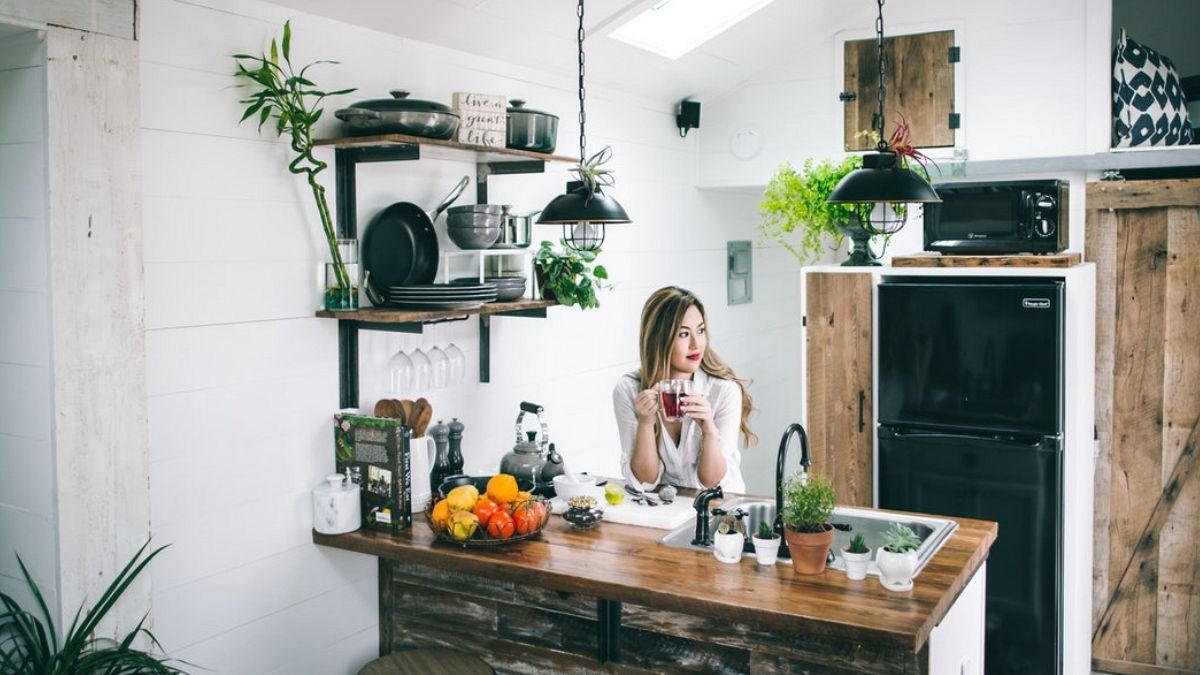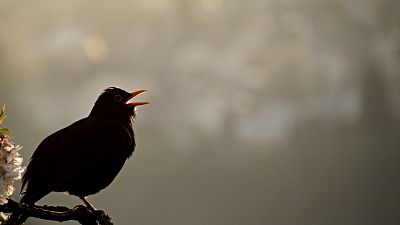Our homes too can be luxurious without harming our planet
Your home, your castle. Take a good look around it. What are the origins of your favourite homeware and accessories? With all information available, you cannot afford to not know the impact of your consumer choices on the environment.
The close link between sustainability and crafts as well as buyers’ increased environmental awareness helped make the 5th edition of London Craft Week 2019 its biggest one yet. Over 100,000 Londoners (and many visitors!) were able to discover craft through more than 240 exhibitions, workshops and talks of over independent makers and luxury brands.
Related | How to find the perfect ethical jeweller
The festival’s managing director Jonathan Burton noted that ceramics and textiles remained the most popular disciplines and shared that ‘as soon as one festival finishes, we start work on the following year’. But until then, which eco-luxury crafts should find their way to your home?
Sustainable luxury furniture from by-products
Bathtubs of eggshell inlay, mother of pearl dining tables, table tops artworks of wasted feathers and swimming pool floors of discarded shells- you may find Nature Squared’s unique natural surfaces in 92% of the world’s superyachts.
Although the company has created bespoke designs from sustainable natural materials for close to 20 years, its work has largely remained unknown to the public. Until now. Through the brand’s latest collaboration with award winning British furniture designer Bethan Gray, Nature Squared’s previously unseen materials reach a much wider audience.
A one of a kind collection of homeware and accessories that you could take home. ‘Exploring Eden’ was showcased in a pop-up unit near the recently renovated (and thematic!) Sea Containers Hotel during London Craft Week.
Related | This lightning designer label is the coolest thing right now
Your next shelving unit or table can be made up of a carefully engineered inlay of seashells that would have otherwise gone to waste. Each furniture piece is unique in pattern and in colour - with prices starting from £380 (Abalone Shell Letter Opener) to £28,880 (Dark Capiz Shell Shelves).
The brand’s Malaysian-born co-founder Lay Koon shares the natural world has always been a part of the ‘innate fabric’ of her life. ‘In moving to Europe as a child in the 1970s, I was immediately struck by the materialism of our first-world lives; the wealth accompanied by the waste; the assumption that natural resources were infinite; the careless consumption without thought for the consequences.’
Although her clients comprise of some of world’s wealthiest people, she continues to add eco-consciousness should be on everyone’s agenda.
‘You would need to be blind, deaf and dumb not to notice that our environment is in critical danger. The issue is always to decide what steps to take and how to change our deeply ingrained habits’.
Related | The world’s first designer low-energy light bulb
Sustainable pieces of art that can be an educational conversation starter - of their origin and of the issues they represent. ‘We (with co-founder Paul Hoeve) want that fascination to provoke thought on how we use our natural resources. And, while admiring the beauty and quality, we want the voices of people involved in the journey to be heard’.
Refillable and 100% sustainable candles and porcelain pots
Basque born artist Ana Bridgewater started her pottery business Abalon out of necessity. ‘In my country the guests of a wedding are to receive small gifts from the bride and groom. I couldn’t find anything in the market I liked, so I decided to create my own refillable candles’.
The first batch did make it to her wedding- and is where the signature ‘gold lip’, found across Abalon pots originates. ‘It symbolises my wedding ring’. Other than as an element of decoration, Ana uses gold to restore broken pieces (Japanese technique Kintsugi), affirming her philosophy of a ‘full circle’ approach to sustainability.
If you’re looking for a one of a kind decorative piece to light up your home, look no further. All Abalon crafts are handmade and no two designs are the same. The artist uses natural, earthy colour finishes and precious stones like emerald and topaz in her creations. The candle wax is also 100% non-toxic and made from pure eco-soya, infused from local British ethically sourced essential oils.
Ana held her pilot slip casting and candle making workshop during London Craft Week, offering attendees a sneak peek behind the creative process of a ceramist (a single porcelain candle takes about half an hour to make!). ‘It takes me a long time to create- a batch of 100-200 pieces can take from 8-10 weeks but I believe it’s worthwhile’.
Related | Homo Faber: a celebration of infinite human creativity
Abalon candles are also available to rent and the newly launched refillable wax subscription service is to further encourage customers to reuse their ceramic pots. The brand’s philosophy to ‘reuse, recycle, rethink’ affirms its environmental awareness with a long-term goal to be a zero-waste business.
Decorative wrapped stones
You may have witnessed or heard about basket weaving, but how about rock-weaving? One of the most talked about exhibitions throughout this year’s London Craft Week showed a modern spin to traditional Japanese basket weaving.
Spanish brand LOEWE met traditional craft and luxury in its collaboration with international basket makers ‘LOEWE Baskets’. Californian mother and daughter weaving duo Shizu Designs demonstrated live how stones can be turned into art at the Spanish brand’s new flagship store on New Bond Street.
The pair takes traditional Japanese weaving techniques a step further - tying ornamental knots around carefully selected rocks to create art pieces that invite peace and serenity. Karen Okino admits it was her mom’s idea to incorporate Japanese basketry knots onto stones, all hand-sourced from California.
Shizu Designs normally use rattan or cane to create their beautiful pieces of art. LOEWE’s contemporary spin features leather. ‘Eco-leather is much easier to mould than rattan which for example needs to be soaked first and takes longer to prepare’. Karen Okino admits a weaved leather stone takes from half to one hour to make. ‘We have looked and have not seen anything comparable anywhere’. Other than being aesthetically pleasing, the wrapped stones dual their function as paperweights with prices starting from 250 euro.
Sustainable unisex broque – from boardroom to mountain
Prior to becoming a boardroom statement, brogues were originally worn by British farmers. A workman’s shoe no more. The recent collaboration of heritage shoemaker Joseph Cheaney with luxury sustainable brand Tengri , takes the classic brogue to the next level.
Although the 150 limited edition pairs are made to order, samples were shown during London Craft Week. The world’s first sustainable footwear made with Khangai yak fibres, which the brand’s founder Nancy Johnson says have unique natural properties.
‘They are naturally as soft as cashmere, hypoallergenic, water-resistant, warmer than merino wool and thermal-regulating’. Your feet will be kept warm and dry while you ‘step into sustainable style’ - the shoes can be further personalised with natural pigments through patina-staining.
Related | The unique flower behind Chanel N°5
Practical, yet luxurious (took 200 hand crafted operations to make a single shoe!), the sustainable twist of the traditional broque is suitable for both work and outdoor activities. One of which can be Tengri travel in Central Mongolia for the most loyal and adventurous clients of the brand.
Nancy hopes the journey through the Khangai region will ‘support conservation, inspire dialogue and redefine life’s ‘luxury’ immersions’, by authentically connecting people, land and animals. ‘From feet to bed and fashionable garments, the goal is to explore the uses of the natural fibres of the Khangai yak and other indigenous animals to create unique, directional pieces for modern life’, she noted.
‘We’re a social company whose profits help to empower indigenous communities like the nomadic herders supplying the fibres, while also supporting environmental change and wildlife protection’- which is why £50 from every broque pair will be donated to local Mongolian conservation efforts. An impactful purchase both socially and environmentally.
Words: Tzvete Doncheva



